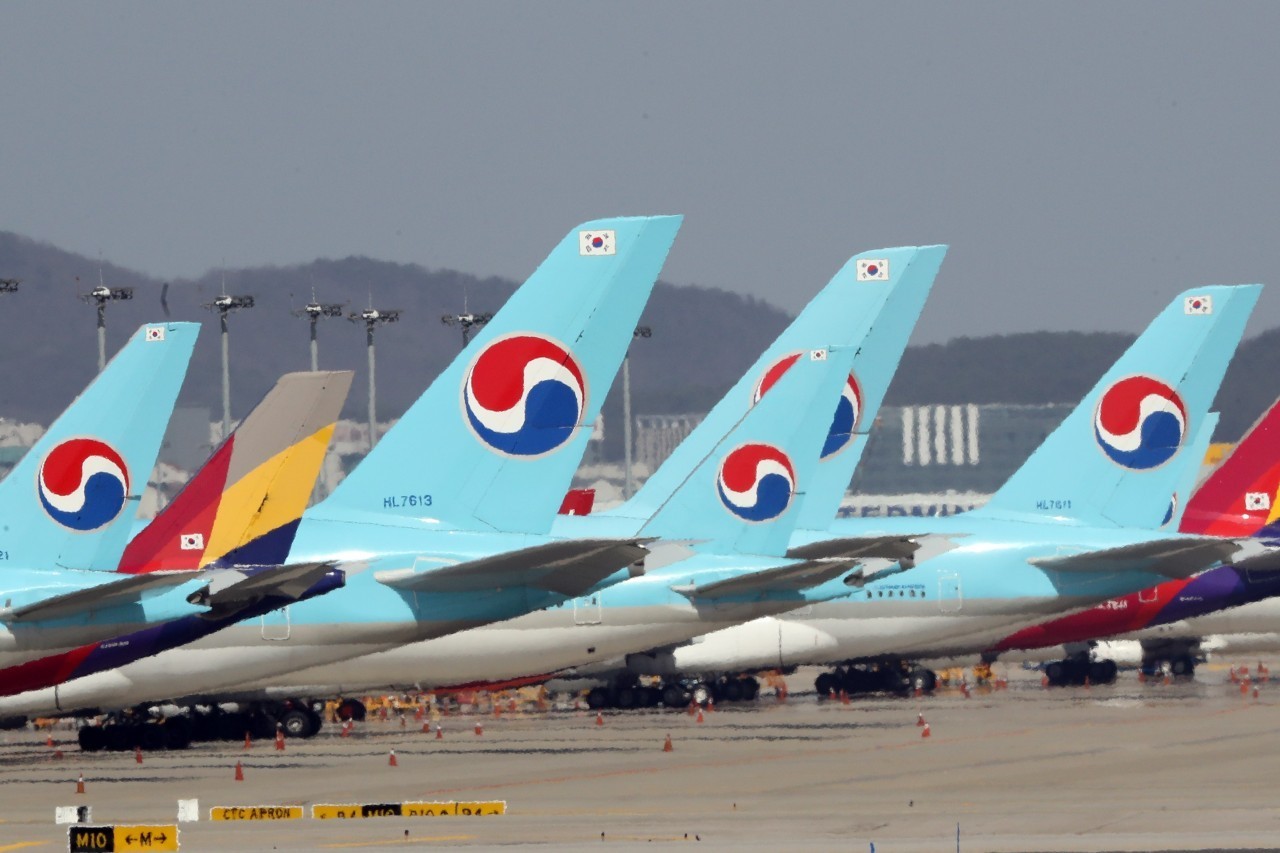 |
Aircrafts of Korean Air Lines and Asiana Airlines line up at Incheon International Airport (Yonhap) |
South Korea on Wednesday unveiled another set of measures to support airlines hit hard by the COVID-19 pandemic in the latest move to help airlines stay afloat during the crisis.
The government will continue to reduce the airport usage fee for the airlines until June, the Ministry of Land, Infrastructure and Transport said in a statement, adding the fee will be lowered by 45.7 billion won ($40.6 million).
The ministry said it will later consider whether to extend the fee reduction again by taking into account air travel demand.
"Through this additional support measure, I expect our airline industry will keep its employees and improve corporate competitiveness until air travel demand recovers," Transport Minister Byeon Chang-heum said.
Air travel demand has dried up as countries strengthened entry restrictions to stem the spread of the pandemic.
The number of passengers on international routes plummeted 84 percent to 14.2 million in 2020 from 90.4 million the previous year, according to the ministry.
The International Civil Aviation Organization and the International Air Transport Association forecast that it would take up to four years for global passenger travel demand to recover from the impact of the coronavirus pandemic.
The ministry said it will suspend a retrieval of unused slots at local airports and temporarily allow South Korean airlines to use slots, which have been unused by foreign airlines.
Korean Air Lines Co. and Asiana Airlines Inc., the country's two full-service carriers, have converted some of their passenger jets into cargo planes to offset the sharp decline in air travel demand.
The move is in line with global peers that are now using their passenger planes for cargo flights, either by using cargo seat bags or removing seats.
Last month, Korean Air joined other airlines to offer a sightseeing flight on the route from Incheon International Airport, South Korea's main gateway, to the East Sea, Busan, Jeju Island, the Straits of Korea and back to Incheon.
Korean Air said it will offer two "flights to nowhere" -- air travel purely for the purpose of the journey, not the destination -- in March.
In line with the move, the ministry said it will allow airlines to offer flights to nowhere at other South Korean airports while introducing inbound sightseeing flights.
The ministry also said it will consult with relevant ministries and agencies on providing additional financial support for the airlines to ease their potential cash shortage.
The state-run Korea Development Bank and the Export-Import Bank of Korea have injected 2.9 trillion won into Korean Air Lines Co. and Asiana Airlines Inc., the country's two full-service carriers.
The two policy lenders also have extended a combined 541.5 billion won to five low-cost carriers, including Jeju Air Co., Jin Air Co. and Air Busan Co., in loans.
Separately, the government will provide subsidies for employment for up to 180 days if airlines keep their employees through paid leave.
Korean Air said Wednesday it will have 70 percent of its employees go on unpaid leave until June due to the prolonged coronavirus impact on the airline industry.
The national flag carrier began to have 70 percent of its 18,000-strong workforce take paid leave in April last year as part of self-help measures to overcome the unprecedented virus crisis. (Yonhap)








